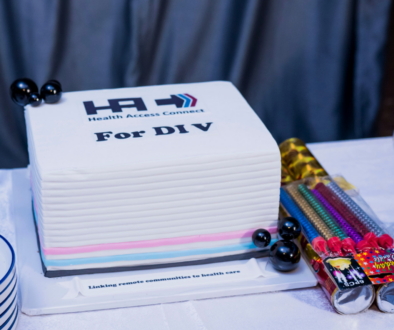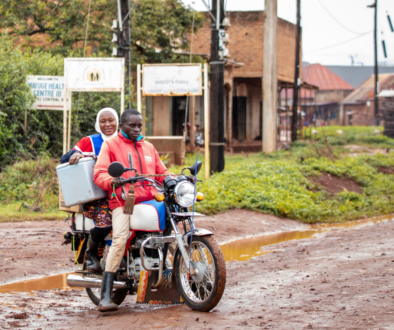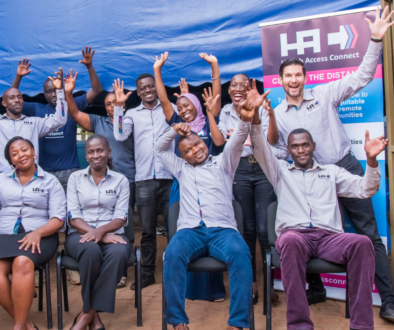HAC’s Solution to the Unmet Need for Family Planning in Uganda’s Remote Communities
In Uganda, as it is in most developing countries around the world: fertility, maternal mortality, and teenage pregnancy rates remain among the highest globally. Approximately 30.1% of Women in Uganda’s rural areas have reported high levels of the unmet need to use contraception[1], teenage pregnancies stand at 25% [2] and the modern contraceptive prevalence rate is lower than 20% [3]. HAC has identified that the drivers of this unmet need are the limited access to health facilities, due to long-distance and unaffordable transport costs, few skilled family planning health workers, and limited medicine and supplies at the health facility.
This challenge leaves women, especially adolescents and young adults at risk of unplanned births, unsafe abortions, maternal injury, and death. As Health Access Connect (HAC), we don’t want any of these things to happen. In fact, we want to empower Ugandans living in remote areas to understand and control their fertility. To ensure this happens, our team is focused on doing three essential things: 1) ensuring there is a sustainable last-mile family planning delivery system in remote communities, 2) ensuring that government healthcare workers, as well as community health workers, are efficiently trained and experienced on how to administer family planning, and finally, 3) ensuring that there is a continuous supply chain of family planning commodities in remote villages.
We believe as long as these essentials are achieved, they will be a constant solution to the unmet need for family planning in remote communities, as well as a path to avoiding risks like unplanned pregnancies, unsafe abortions, maternal injury, and death. Currently, HAC is doing this work in the districts of Masaka and Kalangala, and we hope to expand that work in the future.
At HAC, we have a tried and tested strategic approach to solving the problem of limited access to and utilization of family planning in remote communities. With the support of Erik E. & Edith H. Bergstrom Foundation, we help to bring about lasting and impactful changes in remote communities by providing on-job training to both government health workers and community health workers on how to administer family planning, with a consistent supply chain.
Our efforts in the districts we are currently operating in have been rewarding for the past two years. Nonetheless, the vision is to expand our work to reach Ugandans in remote areas. This is because millions of men and women all over Uganda’s remote areas still continue to face challenges with their reproductive health, simply because they can’t access family planning services.
Our Approach
Our team works at giving vulnerable men and women in remote areas the opportunity to understand and control their fertility. This involves partnering with government health facilities and Village Health Teams (VHTs) to deliver family planning services to those that need it, as well as create awareness of the importance of family planning.
Our community-based model has helped establish sustainable solutions that lay the foundation for men and women in remote areas to have control over their reproductive health, as they please.
Here are our focus areas:
1. Grassroot sustainable outreach clinics
In all HAC’s endeavors to deliver family planning services, sustainability is key. With this, HAC empowers the communities to take lead in working hand in hand with health facilities that can enlighten them about family planning and deliver to them all methods of family planning. To ensure that patients/clients are being given quality care, HAC provides examination beds and curtains for privacy during the outreach clinics.
2. Low-density high-frequency training of health workers
HAC has a set standard of operating procedures for health workers that administer family planning to clients in remote communities. Therefore, in order to ensure that health workers meet these standards, HAC conducts training workshops that involve both theory and practical applications. With these workshops, health workers are able to efficiently serve patients in need.
3. Demand generation and service provision by Village Health Teams (VHTs)
VHTs are local volunteers in these remote communities who are equipped and trained to provide emergency front-line care and the most essential life-saving interventions. HAC trains them in offering family planning counseling and administering short-term family methods like pills, condoms, and injectables. HAC keeps in touch with them to make sure they practicing what they learn from the training.
4. Supplementing Commodities
In order to prevent out-of-stock scenarios, HAC continuously procures and distributes family planning commodities as buffer stocks.
5. Improving Commodity Monitoring
Since one of HAC’s key essentials is to ensure continuity in the supply chain of family planning commodities, HAC trains health facility stock managers to use a logistics management information system (eLMIS) to report on FP commodities. Furthermore, using a six-month moving average model, HAC sets up a system to monitor data and forecast family planning commodity demand
Impact
Here are some of the family planning service numbers that we have achieved:
- 8,399 patient services provided
- 9397 Couple-Years Protection dispersed
- 476 established family planning outreach clinics.
With a sustainable family planning delivery system, Ugandans in remote areas can have control over their reproductive health, giving them the opportunity to plan for their lives and families how they please



